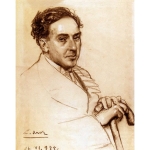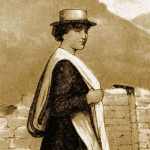and climbs the stairs to our room.
I can hear the bed groan and his shoes drop
one by one. You can have it, he says.
The moonlight streams in the window
and his unshaven face is whitened
like the face of the moon. He will sleep
long after noon and waken to find me gone.
Thirty years will pass before I remember
that moment when suddenly I knew each man
has one brother who dies when he sleeps
and sleeps when he rises to face this life,
and that together they are only one man
sharing a heart that always labors, hands
yellowed and cracked, a mouth that gasps
for breath and asks, Am I gonna make it?
All night at the ice plant he had fed
the chute its silvery blocks, and then I
stacked cases of orange soda for the children
of Kentucky, one gray boxcar at a time
with always two more waiting. We were twenty
for such a short time and always in
the wrong clothes, crusted with dirt
and sweat. I think now we were never twenty.
In 1948 in the city of Detroit, founded
by de la Mothe Cadillac for the distant purposes
of Henry Ford, no one wakened or died,
no one walked the streets or stoked a furnace,
for there was no such year, and now
that year has fallen off all the old newspapers,
calendars, doctors’ appointments, bonds,
wedding certificates, drivers licenses.
The city slept. The snow turned to ice.
The ice to standing pools or rivers
racing in the gutters. Then bright grass rose
between the thousands of cracked squares,
and that grass died. I give you back 1948.
I give you all the years from then
to the coming one. Give me back the moon
with its frail light falling across a face.
Give me back my young brother, hard
and furious, with wide shoulders and a curse
for god and burning eyes that look upon
all creation and say, You can have it.





















Comment form: